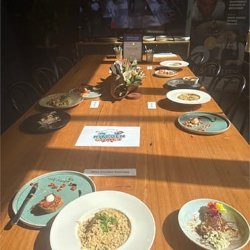Right now in Japan, the unsettling news stories just keep coming.
Among them was the particularly shocking incident in Kawasaki City’s Noborito district where a number of boys and girls who are students of Caritas Gakuen were stabbed one after another.
Of course, there were those feelings of fear when I thought, “What if my child had been there?” but why was this incident in particular so shocking to me? Is it because the assailant died and I’m unable to deal with the unjustness of it all? No matter how you think about it, all you can do is make guesses as to why it happened, and it continues to linger in your mind.
My friend’s child knows someone who lives in the area, and they said that the information about the incident they got via Line messenger was just so real and disturbing that they had trouble falling asleep because of it.
That’s right. The thing I’ve been feeling for a long time is that today there is an abundance of information.
It just so happens that I was in Japan at the time, and TV coverage of the incident was incessant to the point that it interrupted regular programming. Even me, an adult, became more and more filled with fear as time went by, and I could feel my heart quivering with unease and anxiety as I tried to go to sleep at night. Just imagine how an innocent child would handle all that.
Ideally, parents should control information so that it doesn't get repeated again and again to their children, but these days it is essentially impossible to cut children off from information completely. Like in the case of the friend's child I mentioned earlier, learning about incidents via Line is a normal occurrence in this day and age.
Some children handle these kinds of things well, but for sensitive children or those who are averse to such things, grief care becomes necessary. And in order to properly face this situation and provide such care for children, it is also important for parents to perform self-care.
Also, another blind spot that we've missed is the people other than parents who have relationships with children.
A friend of mine teaches French to students at Caritas Gakuen. One of her students was a victim of the attack, and another one had been on the bus when it had happened. She told me that she gets chills when she imagines what might have happened if the bus driver hadn't gotten out and shouted at the assailant and he instead continued his attack inside the bus.
That made me realize that adults also need a place where they can vent about their troubles and anxiety.
In the past, during a time when there were a lot of terrorist attacks, a friend said this to me:
"There’s just bad stuff happening all the time, and since the news comes on at 8 o'clock on every channel, kids are gonna see it no matter what."
My children don't watch broadcast TV programs the way the neighbors' kids do; at home it's either Netflix or satellite TV only. But at some point in time, I'm sure that they will take in information that they don't want. When that happens, I want to be able to explain tragic events to them properly. The secret to building a trust-based relationship is being able to speak openly without hiding anything from each other. My ideal is that my children grow up to be able to talk honestly about their doubts and anxieties so that they can clear their minds and won't let their hearts be dragged down by dark and disturbing events.
- 2019.07.04
- Information selection and grief care




















































